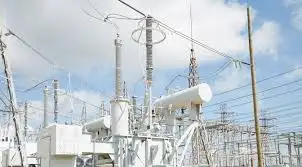Atomic Energy chair steps down
By Toronto Star
NFPA 70e Training - Arc Flash
Our customized live online or in‑person group training can be delivered to your staff at your location.

- Live Online
- 6 hours Instructor-led
- Group Training Available
Prime Minister Stephen Harper, who was angered by the debacle, announced that he had accepted the resignation of Michael Burns as chair of the board of directors of the Crown corporation effective Dec. 31.
"I would like to express my appreciation to the former chair of the board, Michael C. Burns, for his service to AECL," Harper said in a news release outlining the shake-up.
Burns, a Tory fundraiser, was appointed to the top job at AECL by Harper's government in October 2006.
Harper named a former Ontario senior bureaucrat, Glenna Carr, as the new chair, and business executive Hugh MacDiarmid as the new chief executive officer.
The announcement of Burns's departure comes just days after Harper vowed to "carefully examine the roles of all actors" in the shutdown of an aging reactor owned by AECL that choked off supplies of vital isotopes used in medical tests.
Harper had made clear he wasn't happy that Parliament was forced to pass emergency legislation this week to override the safety concerns of the country's nuclear regulator in order to get the reactor up and running again.
"I think it is ridiculous that the government can only resolve an escalating dispute between these two agencies by actually coming to Parliament and passing a law," Harper said.
The Chalk River reactor had been shut down by AECL on Nov. 18 for routine maintenance. But an inspection by regulatory staff found that mandatory safety upgrades – connecting vital cooling pumps to an emergency power supply – had not been done. That put the reactor, which produces half the world's supply of medical isotopes, in violation of its operating licence and AECL opted to keep it shut down.
On Tuesday, Harper blamed the problem on the "Liberal appointed" Canadian Nuclear Safety Commission. But Liberals noted yesterday that Burns, a Tory appointee, was the first casualty of the crisis.
"It is the height of irony and it just exposes that there continue to be deep problems at AECL," said Liberal MP Omar Alghabra (Mississauga-Erindale), the party's critic on the issue.
At the time of the appointment, Natural Resources Minister Gary Lunn had praised Burns's "extensive experience in the energy field as well as a diverse and high-level knowledge of both the public and private sectors." Burns had served on AECL's board of directors from 1987 to 1990.
Green Party Leader Elizabeth May called Burns's departure ``extraordinary" given Harper's previous targeting of the nuclear safety commission for blame. She said it remains to be seen if Burns's departure amounts to an admission of AECL's "gross incompetence" or whether he's simply "falling on his sword" to save AECL further scrutiny.
While AECL is now working to resume isotope production, MPs from all parties are still asking why the crisis was allowed to develop in the first place.











